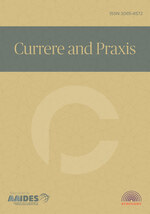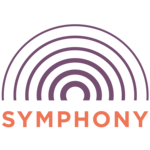Aims & Scope
The aim and scope of Narrative and Education (N&E), a peer-reviewed journal published by Symphony and sponsored by the Association for the Advancement of Interdisciplinary Education Studies (AAIDES), can be summarized as follows:
Aims
N&E aims to advance understanding of how narrative approaches, storytelling, and story-based pedagogies shape learning experiences and knowledge construction in educational contexts. The journal strives to bridge narrative theory and educational practice by examining how storytelling methodologies can enhance teaching, learning, and meaning-making processes. N&E investigates the role of narrative in curriculum development, teacher professional development, and student engagement across diverse educational settings. Through this focus, the journal promotes interdisciplinary dialogue between narrative researchers, educators, and practitioners to advance the understanding of storytelling's transformative potential in education.
Scope
The journal welcomes research across a broad spectrum of narrative and educational domains, including:
- Pedagogical storytelling and narrative-based teaching methods
- Student life histories and autobiographical learning
- Curriculum discourse and narrative analysis
- Teacher professional narratives and identity formation
- Digital storytelling and multimodal narratives in education
- Narrative inquiry methodologies and research approaches
- Story-based assessment and evaluation practices
- Cross-cultural narratives and diverse storytelling traditions
- Narrative approaches to educational policy and reform
- Therapeutic and healing narratives in educational contexts
N&E particularly encourages submissions from researchers and practitioners working across various educational levels, including early childhood education, K–12 schools, higher education institutions, adult education programs, and community-based learning environments. The journal embraces interdisciplinary perspectives, incorporating insights from narrative studies, literary theory, psychology, anthropology, sociology, and cultural studies.
The journal welcomes diverse research methodologies, including narrative inquiry, life history research, autoethnography, case studies, and innovative story-based research designs, all contributing to a deeper understanding of narrative's role in educational contexts and learning processes.





